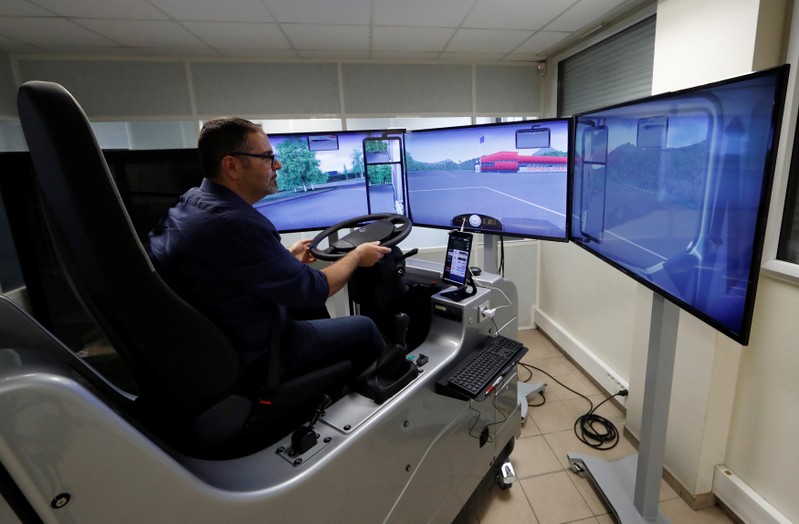
FILE PHOTO: Taiwan President Tsai Ing-wen poses for photographs during an interview with Reuters at the Presidential Office in Taipei, Taiwan April 27, 2017. REUTERS/Tyrone Siu/File Photo
November 3, 2017
By Maureen N. Maratita
HAGATNA, Guam (Reuters) – Taiwan President Tsai Ing-wen arrived on the U.S. Pacific island of Guam on Friday on her way back from visiting Taipei’s diplomatic allies in the Pacific, a trip that caused strong objections from China, which claims Taiwan as its own.
Beijing had complained to Washington and urged the United States not to allow Tsai to transit its territory, which included two days in Hawaii at the start of her trip to Tuvalu, the Solomon Islands and the Marshall Islands.
The timing is particularly touchy as U.S. President Donald Trump is due in Beijing next week.
China regards self-ruled and democratic Taiwan as sovereign territory and regularly calls it the most sensitive and important issue between it and the United States, strongly objecting to transit stops by Taiwanese presidents.
While the office of Guam Governor Edward B. Calvo described it as a “private and unofficial visit”, Tsai was provided a police escort upon her arrival.
Members of Guam’s legislature were in attendance at a welcome reception for Tsai hosted by Calvo, who spoke of “island nations that share a common vision of peace and prosperity”.
In response, the Taiwan president spoke of Guam’s attractions as a tropical island, and called it an “ideal place to visit”.
“I am confident we can bring Guam and Taiwan closer,” Tsai said.
Guam is home to a large U.S. military base and would be key to any U.S. assistance to Taiwan in the event of a conflict with China. Beijing has never renounced the possible use of force to bring the island under its control.
Relations between Beijing and Taipei have nosedived since Tsai won election last year, with China believing she wants formal independence for Taiwan, a red line for Beijing.
For her part, Tsai says she wants to maintain peace with China but will defend Taiwan’s democracy and security.
The U.S. State Department has said Tsai’s transits through U.S. soil would be “private and unofficial” and were based on long-standing U.S. practice consistent with “our unofficial relations with Taiwan”.
Trump angered Beijing last December by taking a telephone call from Tsai shortly after he won the presidential election.
Tsai has been in the United States twice this year. In January, she stopped over in Houston and San Francisco on her way to and from Latin America.
In San Francisco, she visited the headquarters of Twitter, which is blocked in China.
(This version of the story corrects typo in third paragraph to “is” instead of “in”)
(Reporting by Maureen N. Maratita; Writing by Ben Blanchard; Editing by Richard Borsuk)

